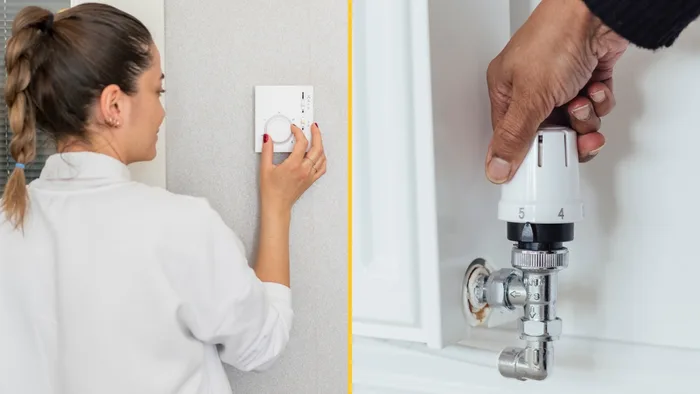Is it actually cheaper to leave the heating on constantly?
Wintry whether is definitely here and a lot of you will have stuck the heating on.
But while most of us probably have the heating on a timer or only switch it on when needed, you may have heard some people argue that leaving it on constantly but on a lower temperature is a cheaper way of keeping your home warm.
Whilst energy prices are slightly lower than last winter, they remain sky high compared to most previous years and are not expected to return to pre-Covid levels before the end of the decade. The cost of living crisis is still very real, and everyone is looking to save money where they can.
To help consumers, the team at MoneySavingExpert have had a look at what the best way is to keep our homes warm whilst also making sure bills aren’t through the roof.
In a post on their website, the experts admit the issue is not “clear-cut” and will depend largely on individual factors such as how big your home is and how well insulated it is.
But they did conclude that the theory of leaving the heating on low all day is a “myth.”
They wrote: “According to experts at the Energy Saving Trust, the idea it’s cheaper to leave the heating on low all day is a myth.
“They’re clear that having the heating on only when you need it is, in the long run, the best way to save energy, and therefore money.”
A timer’s best as your thermostat turns your heating on and off to keep your home at the temperature you set.
“The key thing to understand here is that it’s all about the total amount of energy required to heat your home.
“It’s a given that a certain amount of energy is constantly leaking out of your home (how much will depend on how good your insulation is).”
Because of this, you’re losing energy all day if you keep your heating on all day, so it’s “better to heat your home only when you need it.”
Whilst some specialists think the heating should be left on all day, this is often for a different reason – to stop condensation building up on walls and windows.
The blog explains: “They advocate keeping the heating on low all day, turning all radiator valves up to the max and the boiler down to the minimum, and say the problem with turning the heating on and off is that every time it’s turned off, condensation collects within the walls.
“This condensation can help conduct heat outside the home, they say – meaning you leak heat more quickly and so will use more energy as a result.”
From a pure cost point of view though, only switching the heating on when you need it is definitely the best way forward.
